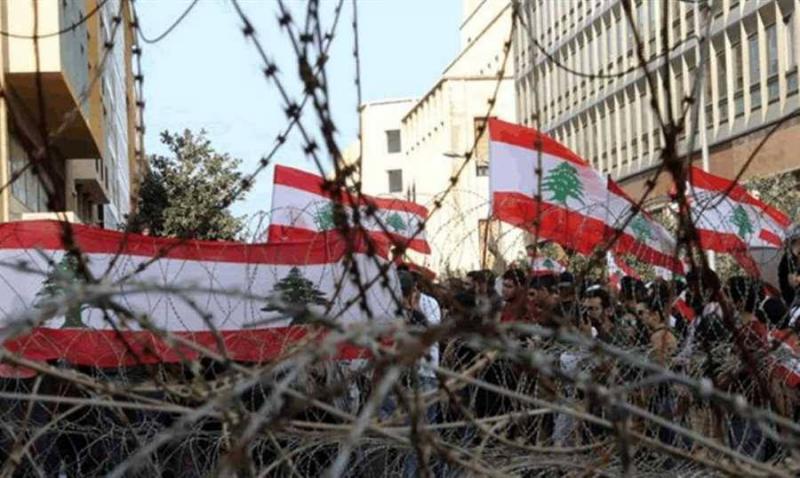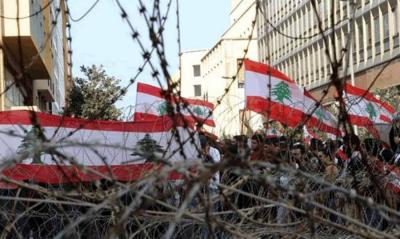Lebanon is undergoing one of the most difficult and critical phases in its contemporary history politically, security-wise, and economically, amidst the absence of the state and its institutions. This situation is compounded by rapidly evolving security events and escalating judicial conflicts, exemplified by the case involving activist William Noun. Some political analysts have indicated that the recent events signal presidential ambitions aimed at sidelining Army Commander Joseph Aoun and an attempt to tarnish the military's image amid political power struggles.
The situation is increasingly tense on all levels, with ongoing international and Arab efforts to prevent further deterioration in Lebanon. Calls have emerged to activate this movement, which was highlighted by Progressive Socialist Party Leader Walid Jumblatt before further chaos ensues.
In this context, it is essential to note the significance of the statement issued from the ministerial meeting of the follow-up and political consultation committee between Saudi Arabia and Egypt regarding international and Arab issues, where Lebanon was a key focus. The foreign ministers of Saudi Arabia, Prince Faisal bin Farhan, and Egypt, Sameh Shoukry, emphasized the importance of Lebanon's security and stability, urging political forces to take responsibility for achieving national reconciliation and expediting the end of the presidential vacancy and completing the relevant constitutional obligations.
According to political sources monitoring these efforts through "An-Nahar," there is a shared concern between the two countries regarding the situation in Lebanon, which threatens dire consequences both in terms of the presidential vacancy and the severe economic and social conditions the country is experiencing, in addition to Iran's interference in its internal affairs and the broader Arab landscape. This necessitates proactive action and intensified diplomatic efforts to help Lebanon emerge from its crises.
Moreover, the phrasing of "completing the relevant constitutional obligations" suggests that the efforts of Riyadh, Cairo, Paris, and those involved in internal matters aim to elect a president for the republic and reach an agreement on the government and the prime minister, within a comprehensive framework to avoid further vacancies.
The same sources reveal that the coming days will witness active Egyptian and Saudi diplomatic movements towards Washington and Paris, with a visit to Beirut by the Egyptian foreign minister not ruled out, under the continued observation of the Arab League. In this regard, several Arab and foreign diplomatic entities have expressed concern over the Iranian role, pointing to the recent visit of Iranian Foreign Minister Hossein Amir-Abdollahian to Beirut and his meetings with Hezbollah Secretary-General Hassan Nasrallah and heads of pro-Iran groups as a message to the international community that Iran holds sway over Lebanese affairs and uses Lebanon as a platform to impose its conditions, capable of obstructing all electoral processes if sanctions against it persist.
Simultaneously, "Democratic Gathering" member MP Marwan Hamadeh stated to "An-Nahar": "We are not surprised by the Egyptian and Saudi roles to assist Lebanon. Egypt, as a leader in Arabism, has a long history of standing by Lebanon, as does the Gulf states, notably Saudi Arabia. We haven’t forgotten the diplomacy of the late Foreign Minister Prince Saud al-Faisal or the efforts of Ambassador Ali al-Shayer and Kuwait's Ambassador Abdul Hamid al-Baijan when they were targeted by gunfire during their efforts to halt the war in Lebanon." He emphasized that "our history and depth are Arab, and Cairo and Riyadh, along with our friends, have always played positive roles in assisting us."
MP Hamadeh expressed concern about the potential for larger and more dangerous unrest "as the country stands on the brink of a revolution much greater and more perilous than what occurred in 2019, amid oppressive tools and actions by certain agencies stemming from the era of hegemony and the Lebanese-Syrian security system that was in place then." He warned against a return to the tumultuous times of the 1970s and 1980s, noting that people are currently enduring a genuine economic and social crisis without a functioning state or institutions, and facing a resounding presidential vacancy alongside prolonged obstruction from Tehran and its allies in Beirut, adding that the Iranian minister's recent visit was a lesson in transparency and diplomacy amid drone threats.
However, returning to the core message, Hamadeh concluded: "We have been and will continue to stand with Egypt, Saudi Arabia, and the Gulf, as this is our history, and for this reason, we rely on their efforts to assist Lebanon, as they have always been by our side in both good times and bad."




